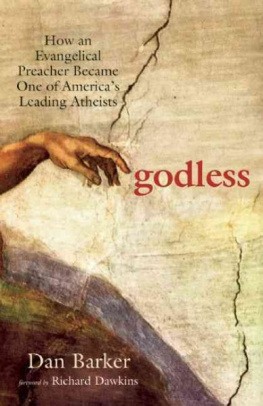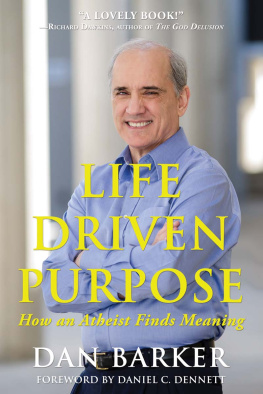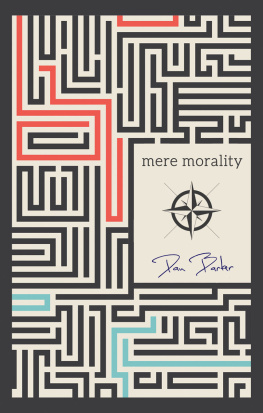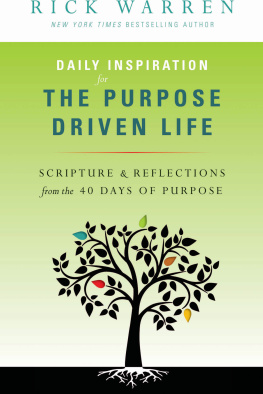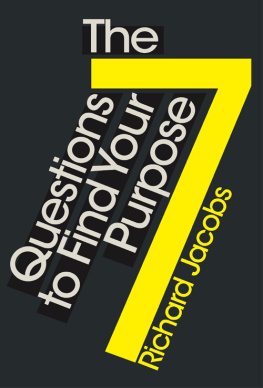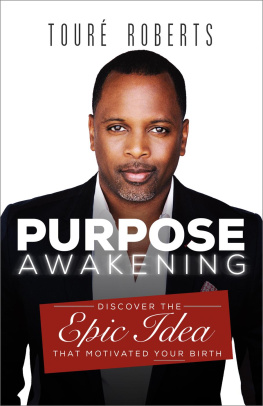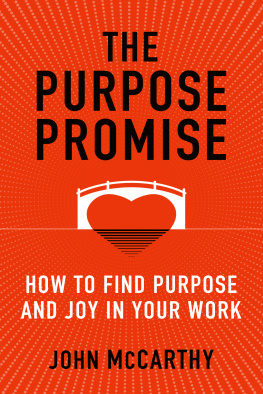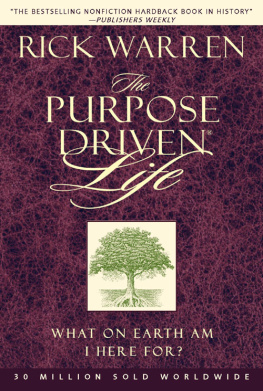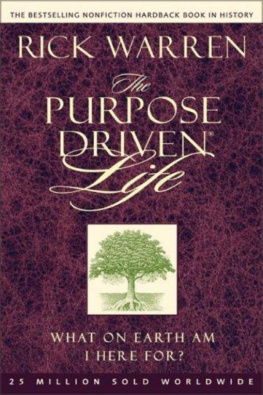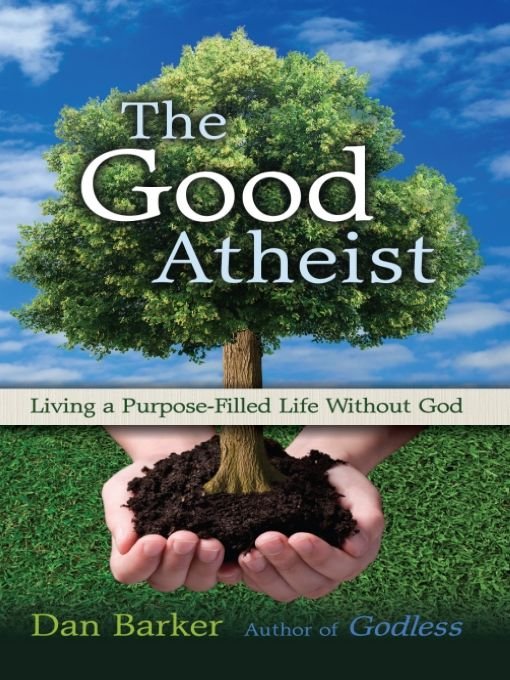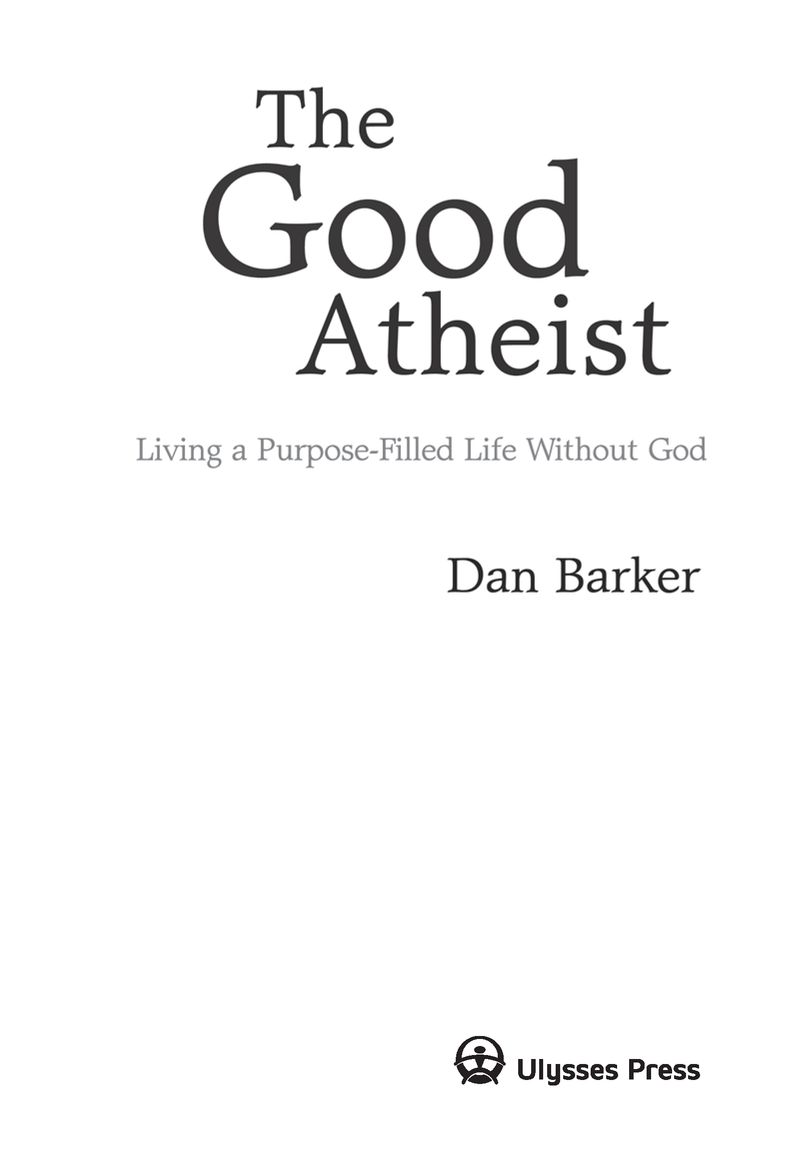Table of Contents
Foreword
I WISH I HAD HAD THIS BOOK to read when I was going through my struggles with faith. Back then, I knew that the arguments for god were weak, but I wasnt sure where to begin making sense of life without god. It took years of reading and thinking to spin my way out. Im still spinning my way out, and just reading this book helped me organize my thoughtsthings I already knew and understood seem clearer and more grounded. I appreciate that Dan has taken the time and done the research to write this book. I bet youre going to love reading it.
Letting go of faith and accepting that Im a free agent able to make choices, find purpose, and take action based on my own personal desires and my own personal volition was ultimately liberating. Years of religious instruction and indoctrination were hard to undo. Life was easier with prescribed choices and a premade list of what was right and wrong. On the other hand, living without godor some divinely inspired purposecan be scary as well. Its hard to make complicated choices. And not all the choices we make lead to the outcomes we wish for. Sometimes what we wish for isnt what we want anyway!
When youre religious, theres always an answer that blunts the edge off anything catastrophic, or that guides you along, lulling you into a state of babyish calm when things are going well. But real life isnt like that. There are real catastrophes. There are real unfortunate outcomes. There are also real successes and real serendipitous joyful accidentscoincidences and hard work that pays off with more than we ever expected. Thats life.
I love when Dan writes, Life doesnt need purpose, purpose needs life. That is so true. I understand this to be the directed energy that a personalive, cognizant, and with purposecan bring to affect him or herself and the world.
Our consciousness is like having been givenby evolutiona kind of car. To me its like a Ferrari that can go really fast and is very powerful. However, the religious are taught that their mind is more like a train car that needs an engine to pull it along. Without the engine at the front of the train, the car is stranded, and off the tracks it cant go anywhere.
But thats not true. Our minds have tremendous power. We can behave with great insight and discipline and compassion. Dans book explains all those myths that the church and the religious keep on promotingeven when theyve been shown to be wrong over and over again. The religious do this because they need believers in order to stay in power. Also, people gravitate toward this ideology because, in the short run, faith is comforting and easier. But in the long run, it is very costly.
I feel I am a much better citizen of my community, world, and family because I no longer believe in god. I make decisions on my own. Its often difficult, and I am often not always in lock-step with the thinking of others. But in general I do less harm, I am more compassionate, I use actions instead of intentions (or prayer), and I am generally tougher and more resilient without god in my life. I still get sad, I still make mistakes, I still brood and I still get depressed from time to time. But now Im not grasping at supernatural concepts, or fuzzily-thought-out, half-baked, new-agey woo-woo. I rely on evidence, and I have an understanding of what makes for good evidence.
This book will be shocking and powerful if youre still making the transition out of religious belief, and it will be a great reminder of why you have confidence in your world-view if youre already a nonbeliever. I loved Dans earlier books, Losing Faith in Faith and Godless. With this book, Dan goes further and deeper. He has matured in his thinking just as I am trying to do the same. Hes made it all much easier for me.
So enjoy.
Julia Sweeney
Preface
WHEN I REJECTED CHRISTIANITY in 1983 after 19 years of preaching, my self-excision was traumatically painful. My commitment to Jesus had given me a source of purpose, destiny, and fulfillment. Ordained to the ministry, I had been an associate pastor in three California churches. I also spent years trekking across Mexico in missionary worksmall villages, jungles, deserts, large arenas, radio, television, parks, prisons, and street meetings. I spent more years in traveling evangelism across the United States, preaching and singing wherever audiences could be foundchurches, street corners, house-to-house witnessing, and college campuses. I wrote many worshipful Christian songs and musicals, some of which are still being performed today.
I did not lose my faith. I gave it up purposely. The motivation that drove me into the ministry was the same that drove me out. I have always wanted to know. Even as a child I had fervently pursued truth. I was rarely content to accept things without examination, and my examinations were intense. I was a thirsty learner, a good student, and a good minister because of that drive.
Since I was taught and believed Christianity was the answer, the only hope for man, I dedicated myself to understanding all I possibly could. I devoured every book, every sermon, and the bible. I prayed, fasted, and obeyed biblical teaching. I decided that I would lean my whole weight upon the truth of scripture. This attitude, I am sure, gave the impression that I could be trusted as a Christian authority and leader. Christians, eager for substantiation, gladly allowed me to assume a place of leadership, and I took it as confirmation of my holy calling.
For years I went through an intense inner conflict. On the one hand I was happy with the direction and fulfillment of my Christian life; on the other hand I had intellectual doubts. Faith and reason began a war within me. And it kept escalating. I would cry out to God for answers, and none would come. Like the battered wife who clings to hope, I kept trusting that God would someday come through. He never did.
I finally realized that faith is a cop-out, a defeat, an admission that the truths of religion are unknowable through evidence and reason. It is only undemonstrable assertions that require the suspension of reason, and weak ideas that require faith. I just lost faith in faith. Biblical contradictions became more and more discrepant, apologist arguments more and more absurd, and, when I finally discarded faith, things became more and more clear.
It was like tearing my whole frame of reality to pieces, ripping to shreds the fabric of meaning and hope, betraying the values of existence. It was like spitting on my mother, or like throwing one of my children out a window. It was sacrilege. All of my bases for thinking and values had to be restructured.
There was no specific turning point for me. I one day just realized that I was no longer a Christian. Yet I was a preacher for many years, and I guess it hasnt all rubbed off. I would wish to influence others who may be struggling like I did, to influence them to have the guts to think. To think deliberately and clearly. To take no fact without critical examination and to remain open to honest inquiry, wherever it leads.
I shared the story of my journey from evangelical preacher to atheist spokesperson in much greater detail in an earlier book, Godless (Berkeley: Ulysses Press, 2008). In that journey, Ive found that one of the greatest challenges facing post-Christian converts after their departure from their churches is that because atheism has no church, no cult, no creed, no dogma (nor do we want or need such things) many nonbelievers feel alone, lacking an opportunity to sit and discuss practical answers to lifes little problemsand big ones. The kind that haunt you at four in the morning, when youre lying awake wondering whether youve made the correct choices in life. Questions like, Since God doesnt exist, what am I here for?


